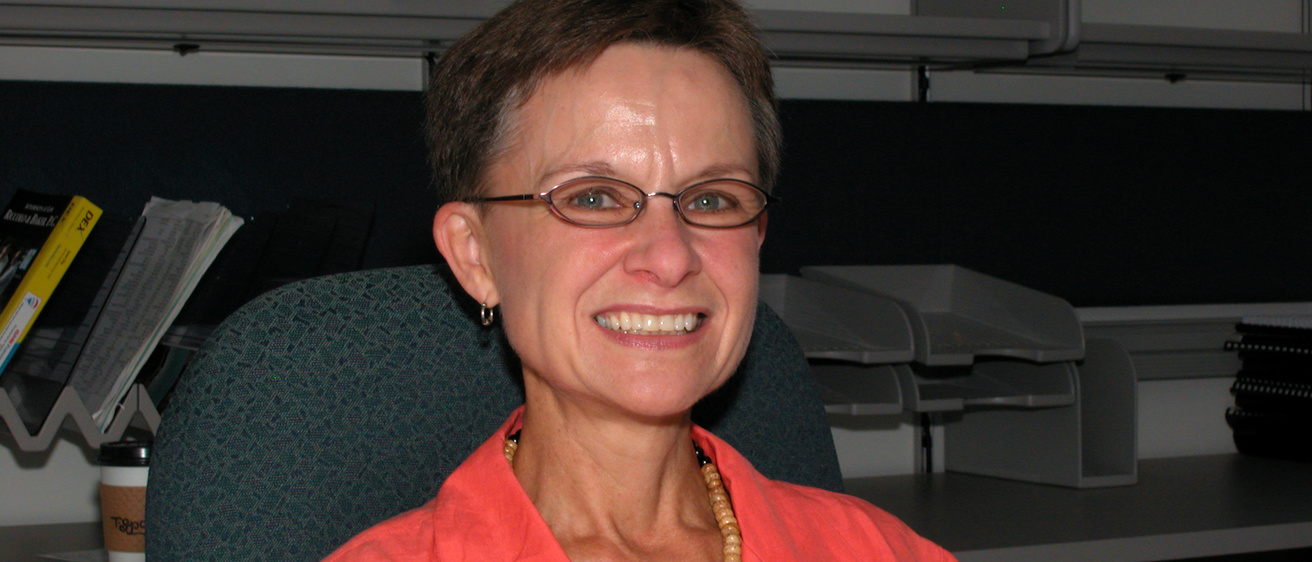College of Education Associate Professor Emeritus Linda Fielding died June 18, 2021, from complications related to Alzheimer’s disease.
Fielding retired in 2016 after serving more than 25 years in a variety of positions in the college, influencing countless students. This includes serving as associate chair of the Division of Curriculum and Instruction, associate dean of Teacher Education and Student Services, and as an associate professor of Elementary Education and Language, Literacy, and Culture (LLC).
Fielding’s research interests included classroom techniques for improving literacy learners, and literacy instruction for students and teachers. Through her scholarship and leadership, she was instrumental in the success of the LLC program.
Associate Professor emeritus Renita “Nita” Schmidt, who pursued her doctorate in the LLC program in her mid 40s, says that Fielding was first a mentor, and then a colleague and friend.
“That first semester, I spent hours and hours with Linda as we planned for class and discussed student work,” Schmidt recalls. “I learned ‘ways of being’ a professor. She really did all the work that semester, but she always made me feel as if I was instrumental and a partner.”
Schmidt says that Fielding was a patient professor who provoked her students to think deeply and critically.
“I have never seen anyone with better wait time in classroom settings than Linda Fielding. She would pose a question in class and then smile and wait. Her smile was absolutely the best,” Schmidt says. “Allowing wait time produced rich and thick responses with diverse answers from differing viewpoints. She was an amazing teacher.”
Devin Redmond, Developmental Reading Program alumnus who is currently the teacher librarian at Coralville Central Elementary School, agrees with that sentiment.
“As a strong intelligent woman and educator, Dr. Linda Fielding will always have a special place in my soul,” Redmond says. “I can still picture her handwriting on the papers I turned in; her comments were plentiful, helpful, and encouraging.”
Redmond says Fielding led a Reading Clinic, a hands-on, intense six-week course that taught her a great deal about students and reading.
“Dr. Fielding asked me to be her teaching assistant, an honor I couldn’t believe was bestowed upon me, and later, she even trusted me to teach my own class,” Redmond says. “As I think about her now, I realize that she was a master at Vygotsky’s Zone of Proximal Development. In layperson’s terms, this is when a teacher knows just the right push and amount of nudge a student needs to reach their next level of understanding. Linda didn’t know the right touch because of a test score or a data point. She knew because she thought about her students as humans, she observed them, listened to them, and kept universal big ideas of lifelong learning in the forefront.”
In addition to being an exceptional teacher, Fielding was also an accomplished scholar. She was a well-known reading researcher who did groundbreaking and seminal work on reading comprehension in the 1980s with Richard Anderson and P. David Pearson at the University of Illinois. Her citations are frequent in reading methods books for teachers and scholars around the world.
“Linda was very humble about her academic research, “Schmidt says. “It was just what she did.”
